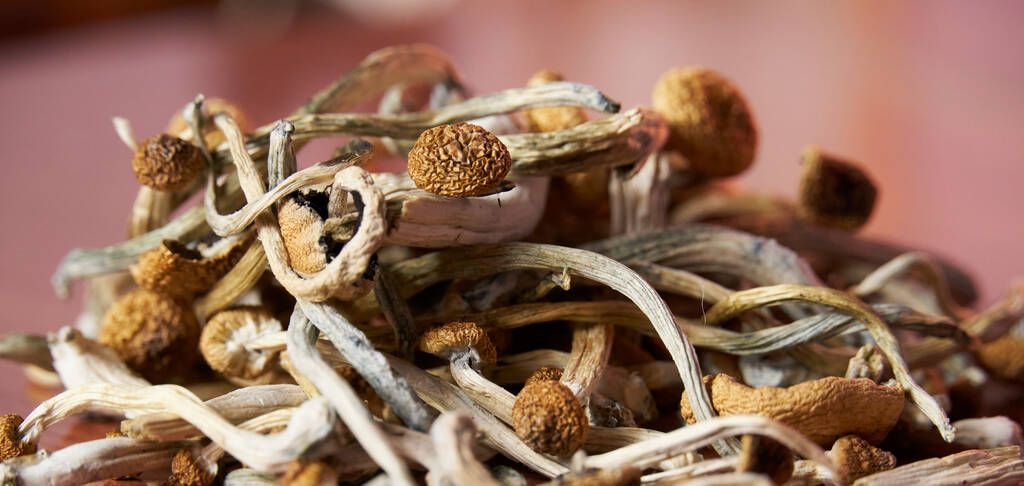A new study has found that psilocybin may be more effective than the antidepressant escitalopram (an SSRI) in treating moderate to severe major depressive disorder.

Dried psilocybin mushrooms.
The study was presented at the European College of Neuropsychopharmacology (ECNP) Congress in Milan, was was published in the most recent issue of the The Lancet’s eClinicalMedicine.
Led by Tommaso Barba from Imperial College London, the phase 2, six-month trial included 59 participants with moderate to severe depression. Thirty participants received a single dose of psilocybin, while 29 underwent a six-week course of escitalopram. Both groups received about 20 hours of psychological support.
Both treatments improved depressive symptoms, with benefits lasting six months. However, the psilocybin group reported greater improvements in social functioning and psychological well-being.
“These results appeared to be maintained over a six-month follow-up,” said Barba, adding that earlier research also showed psilocybin improves sexual drive, unlike SSRIs, which often lower libido.
David Erritzoe, co-first author and Clinical Director of the Centre for Psychedelic Research at Imperial College, noted that psilocybin therapy could offer a more comprehensive approach to depression, improving both mental health symptoms and overall well-being.
Erritzoe cautioned that psilocybin is still experimental and must be administered in controlled settings. More research is needed to determine its long-term efficacy and safety.
A separate study published earlier this year in the journal Clinical Psychopharmacology and Neuroscience found that psilocybin mushrooms “could prove to be revolutionary in treating depression and become an alternative medication to SSRI”.








